Shimano Shifters Look Funny at Parisnice
For team sponsors, the Tour de France is the biggest shop window in cycling and there are loads of new bikes and products making their first appearances in the race this year – here are some of the most important ones. Some of these products have been around for a few months now and have seen action in other races, some have only just been released, and some are flying under the radar, yet to be launched…
Pinarello Dogma F14
Pinarello has just launched the Dogma F which takes over from the Dogma F12 as its top-level road bike. Ineos Grenadiers will be using the new model in this year's Tour de France.
> Find out all about the Pinarello Dogma F here
The headline news is that the Dogma F frame is said to be 9% lighter than that of the F12 and the fork is 16% lighter. Pinarello also says that the Dogma F has less drag – down 4.8% on the disc brake version and 3.2% on the rim brake model. Interestingly, Pinarello also says that the disc brake model has less drag than the rim brake; it's 7.3% lower if you consider just the frame and fork.
Pinarello says that the Dogma F benefits from a narrower seat tube (just 20mm wide at the top junction) and seatpost taking advantage of the UCI rules for 2021 reducing minimum tube width, and that new down tube cross-sections also improve aerodynamics.
Wilier Filante SLR
Both Astana-Premier Tech and Team TotalEnergies ride Wilier bikes and the Filante SLR, launched last November, will be making its Tour de France debut.
> Find out all about the Wilier Filante SLR
Wilier says that the Filante SLR has been designed with "real-world aerodynamics" in mind. What does it mean by that? Wilier says that the airflow is very clean and consistent in the wind tunnel but that things are different when you get out into the big, wide world. The wind is constantly shifting and changing in intensity and there's turbulence from other riders.
For these reasons, Wilier has altered the Filante SLR's tube profiles from those of its Cento10Pro frame.
"We still use NACA airfoils… but unlike previous frames, this cut [at the back of the tube] was softened… The design is much more rounded," says Wilier's R&D technical manager Claudio Salomoni.
"This is a great help in the real world because the boundary layer – the wind particles closest to the frame – adhere more to the profile than on the Cento10Pro. As we change the yaw angle, the frame maintains its good aerodynamic characteristics."
The Filante SLR is a disc brake bike for electronic groupsets only, with the hoses and wires routed internally, and Wilier claims a frame weight of just 870g.
When we reviewed the Filante SLR here on road.cc we called in a "lightweight aero superbike that offers quick handling and an excellent ride quality".
> Read our review of the Wilier Filante SLR
Bianchi Specialissima CV Disc
Team BikeExchange race on Bianchi's Specialissima CV which was launched last October. The Specialissima is the lightweight bike in Bianchi's range, and disc brakes have now been added for the first time. Bianchi claims a 750g frame weight, (55cm, painted) and 370g for the full-carbon fork.
> Find out about the Bianchi Specialissima CV here
Bianchi says the Specialissima CV Disc features aero improvements that have been carried over from its Oltre aero road bikes, including internal cable routing, an integrated seat clamp, and tubing that's shaped to reduce drag. It takes tyres up to 28mm wide.
The Specialissima uses FSA's ACR (Aerodynamic Cable Routing) system, with all cables and hoses routed internally.
Canyon Aeroad
The updated Canyon Aeroad technically made its Tour de France debut last year when Warren Barguil rode one, but this year is the first time that it'll be used widely across the brand's sponsored teams: Movistar, Alpecin-Fenix, and Arkea-Samsic.
The latest Aeroad was officially unveiled last October with claims of improved aerodynamics and reduced weight. Canyon also said that the updated Aeroad offered sharper handling than previously and enhanced comfort.
Check out all the details on the Canyon Aeroad here
We've didn't have the chance to do a full review on road.cc but we did get two or three rides on one and absolutely loved it. Other riders who were able to spend more time on the bike had issues.
Some users experienced excessive wear to the seatpost and Mathieu van der Poel broke an adjustable-width handlebar while racing. Canyon issued a notice telling owners not to use the new bars while it worked on developing a replacement while the pros used other bars and the Aeroad's internal cables had to be run partially externally (pic above) as a temporary measure.
It looks like Canyon has equipped pro riders with new bars for the Tour de France, so the cables can now run internally again.
Merida Scultura 5
Merida's Scultura 5 has been on the UCI's List of Approved Models of Framesets for months but it has yet to be released, so keep your eyes on the Bahrain Victorious team for a sneak peek.
The riders have been using the bike pictured above recently, which is likely to be the Scultura 5. Although it has dropped seatstays, this bike certainly isn't Merida's Reacto; the down tube isn't deep enough, the fork crown isn't integrated, the seatstays meet the seat tube at a different height, the seat tube isn't cut away around the rear wheel... It's just a totally different bike.
It's certainly not the existing Scultura either – that bike has a completely different silhouette.
We guess that Merida is incorporating aero features into the updated design of its lightweight road bike. Many other lightweight bikes have been aero-ised in their latest revamps: Specialized Tarmac SL7, Trek Emonda, Bianchi Specialissima, and so on.
We expect Merida to launch this new bike officially soon but with huge delivery issues in the cycling world right now we wouldn't like to put an exact timescale on it.
Cervelo R6
Primo Roglic was spotted on a yet-to-be-released Cervelo as long ago as the Spring Classics. It could be an update of the R5 – presumably called the R6 – although nothing has appeared on the UCI's List of Approved Models of Framesets.
The new bike has a slim but much deeper head tube than the R5, with internal cable routing. It also has tiny seatstays, large chainstays, and plenty of space for wider tyres.
We will probably see the new bike being ridden by Jumbo-Visma in the Tour.
Lapierre Xelius SL
Groupama-FDJ will be riding the Tour de France on a just-released Lapierre Xelius SL. Team rider David Gaudu has already raced on it at the Dauphiné.
Lapierre says the Xelius SL is "ultra-lightweight, with a more distinguished design thanks to its tighter lines and fully integrated cables to reduce the aerodynamic impact of the frame and gain speed when going downhill".
The new version also comes with a more aggressive geometry than previously.
New Shimano Dura-Ace Di2 groupset
It's pretty well established that Shimano will launch a new 9200 version of its top-level Dura-Ace groupset this year. How can everyone be so sure? We've seen the patents, it has already been used by Team DSM, and it's Shimano's centenary so it makes sense that it'll reveal something big.
Plus, according to Shimano's regular launch cycle, a redesign is overdue, and there's evidence from the likes of Liv which told us that its new Langma Advanced SL Disc won't be available in a SRAM Red build in the UK, but that a different version is on the way later in the year. If this was anything other than Dura-Ace, they'd have revealed the details already.
The exact form Dura-Ace 9200 will take isn't completely clear. We all but know from patents that it's 12-speed and that the Di2 version is semi-wireless (the derailleurs are linked to one another and to a battery by wires, but the communication with the shifters is wireless). We don't know for certain whether there will be a cable-operated (non-Di2) shift option.
As you'd expect, Team DSM has been using Dura-Ace 9200 in its Di2 and disc brake forms. It'll be interesting to see whether other teams are equipped with the new components for the Tour de France – the race is cycling's biggest shop window, after all. Seventeen of the 23 teams in this year's Tour use Shimano Dura-Ace and we can't see it being rolled out to all of them, so we'll all just have to keep 'em peeled.
New Shimano wheels
Many riders on Shimano-sponsored teams have been using unbranded wheels over recent months, suggesting that the Japanese brand has new models on the way.
We saw Jumbo-Visma used unbranded wheels at the Tour de France last year to bring the weight of their Bianchi Oltre XR4s down towards the UCI's 6.8kg minimum weight limit.
The wheels used by Team DSM (and others) recently look very similar. The Dura-Ace front wheels currently in Shimano's range feature a conventional spoke pattern where the drive-side and non-drive-side patterns match.
The drive-side spokes on the unbranded wheels are still a straight pull design, but they are now radially laced.
Shimano appears to be using a 2:1 spoke pattern here where there are twice as many spokes on the non-drive-side as there are on the drive-side. This could well be a weight/drag saving measure that Shimano believes will cope with the forces from the front brake.
At the rear, the non-drive-side seems to use radially laced straight-pull spokes while the drive-side has what looks to be at least a two-cross pattern.
It is tricky to tell if the rim has been made any wider than the old model, but this is certainly no skinny rim like the Lightweight wheels that Ineos Grenadiers are known to use.
We'd expect the new wheels to be launched at the same time as the Dura-Ace groupset.
Campagnolo Bora Ultra WTO wheels
Campag unveiled its new Bora Ultra WTO wheels a couple of months ago, and 2020 Tour de France winner Tadej Pogačar will be using them on his Colnago V3RS and C64 team bikes in this year's race.
Find out all about the Campagnolo Bora Ultra WTO wheels here
The disc-brake-only wheels are tubeless-ready, and Pogačar will be running them tubeless.
Campag claims that the C-Lux (Campagnolo-Luxury) "is so pristinely smooth that it doesn't require lacquer", and this allows it to save weight.
The Ultra WTO wheels come with a new set of disc-specific hubs, the front one of which has a body made from carbon fibre which saves more weight. Both hubs spin on Campagnolo's CULT ceramic bearings.
Loads more wheels
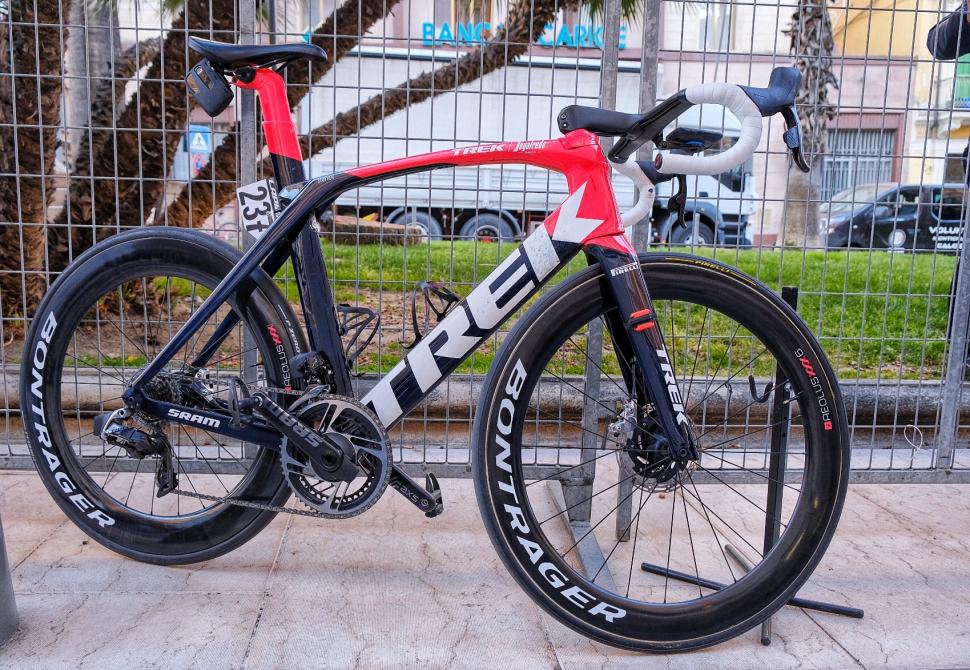 Trek's Bontrager brand expanded its Aeolus range with its "fastest wheels ever" back in April, the outgoing XXX models replaced by RSL51, 62, and 75 wheels. It's tubeless clinchers only now for the Trek-Segafredo pro riders.
Trek's Bontrager brand expanded its Aeolus range with its "fastest wheels ever" back in April, the outgoing XXX models replaced by RSL51, 62, and 75 wheels. It's tubeless clinchers only now for the Trek-Segafredo pro riders.
Mads Pedersen rode them at Paris-Nice and Jasper Stuyven won Milan-San Remo while using the RSL75 rear wheel. Expect to see them all over Trek-Segafredo bikes at the Tour.
Movistar uses wheels from US brand Zipp which has updated its 353 NSW, 454 NSW, and 858 NSW models recently. You'll do well to spot the differences though because we're talking about rim width, switching to a hookless design, and changes to the hubs.
> Find out about Zipp's 454 NSW and 858 NSW wheels here
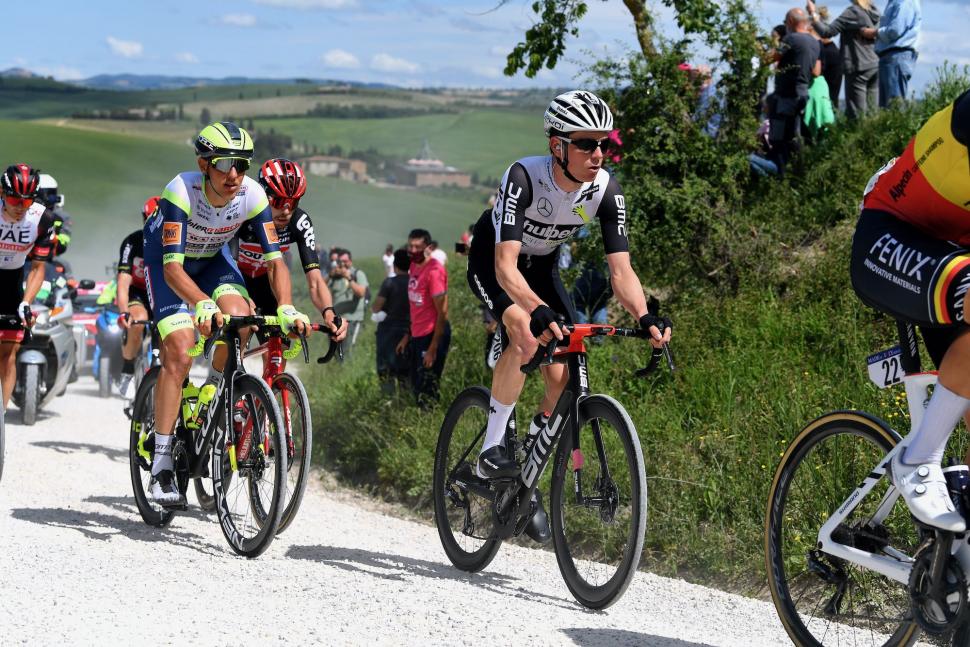 All of the Hunt wheels used by the Qhubeka Assos team will be making their Tour de France debut because this is the first year that the UK brand has supported a pro team. Mauro Schmid rode a pair of £879 Hunt 50 Carbon Aero Disc wheels to a Giro d'Italia stage victory recently.
All of the Hunt wheels used by the Qhubeka Assos team will be making their Tour de France debut because this is the first year that the UK brand has supported a pro team. Mauro Schmid rode a pair of £879 Hunt 50 Carbon Aero Disc wheels to a Giro d'Italia stage victory recently.
And something that we won't see…
We certainly won't be seeing the Supersapiens glucose monitoring devices at the Tour de France because the UCI has introduced rule 1.3.006bis, banning the in-competition use of devices that capture information on metabolic values including, but not limited to glucose and lactate.
Supersapiens has been rapidly expanding the number of professional cycling teams that it is working alongside, but the UCI's ruling will mean that its product cannot be used within any sanctioned event, although riders are free to use it in training.
Source: https://road.cc/content/feature/bikes-and-components-debuting-tour-de-france-2021-284393
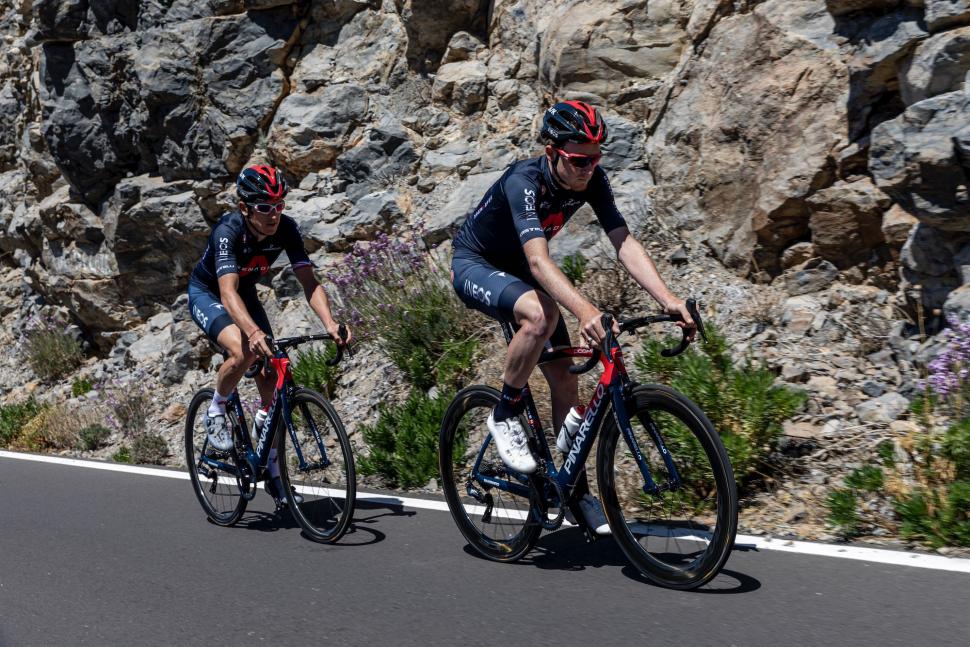
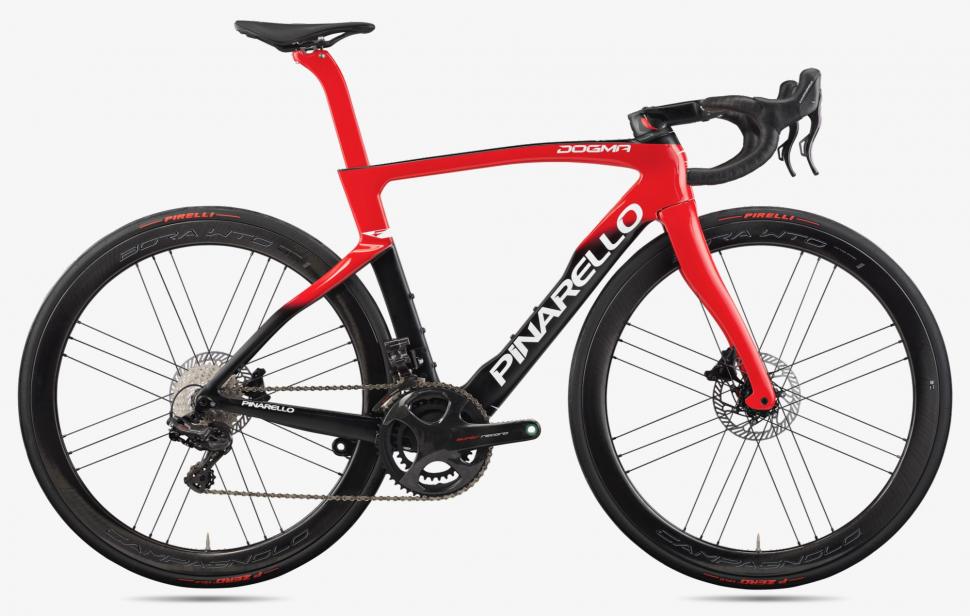
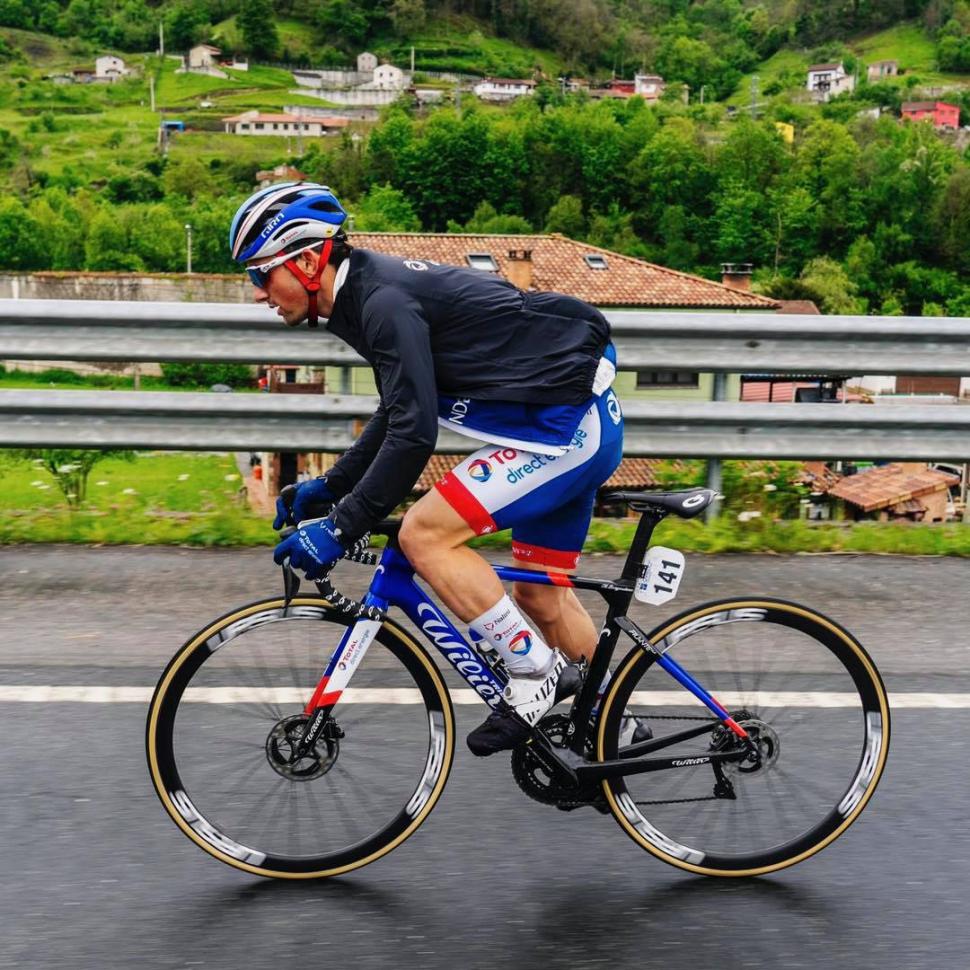
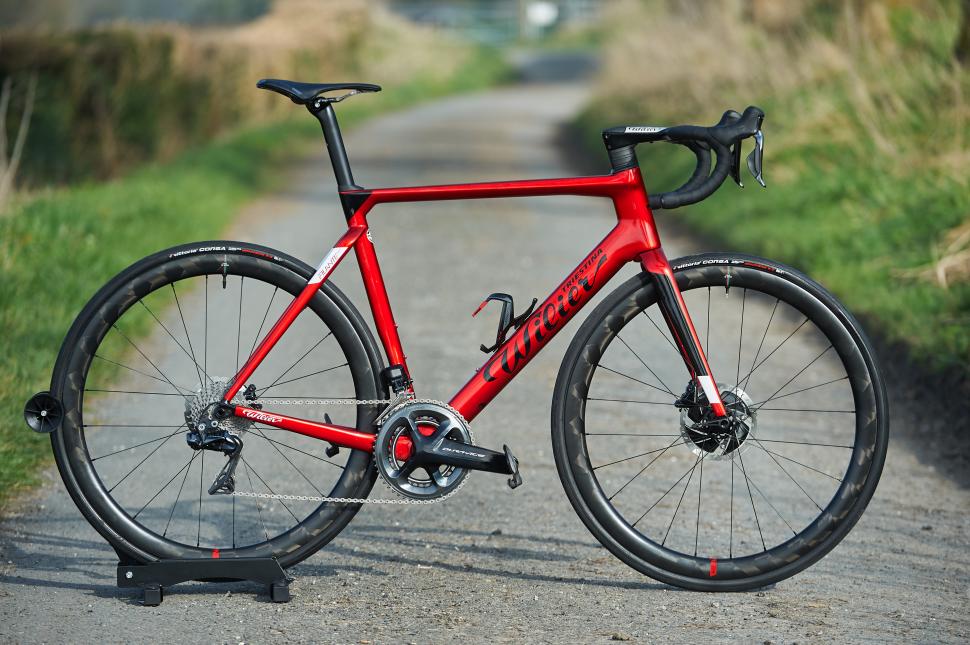
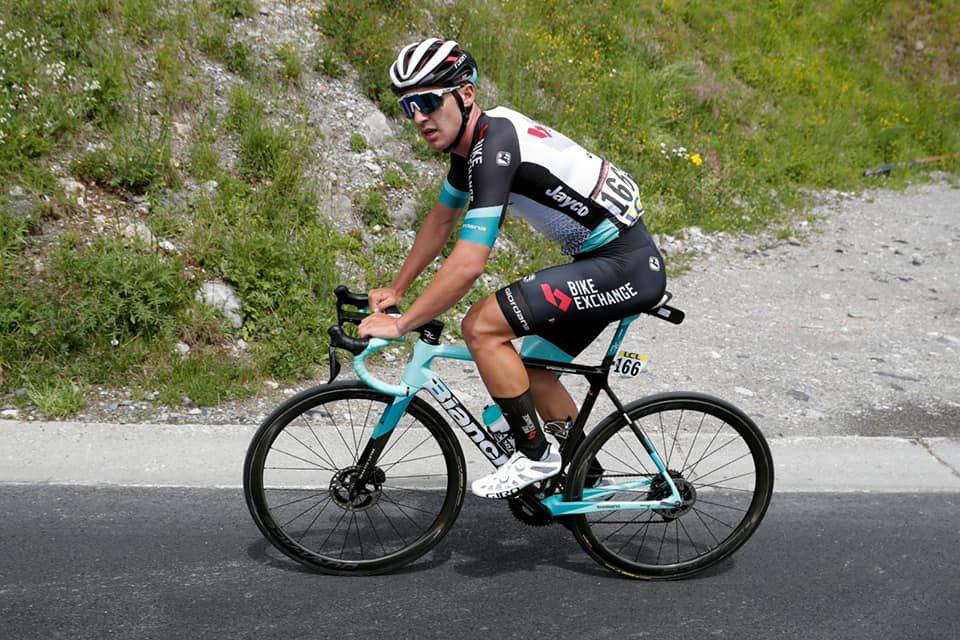
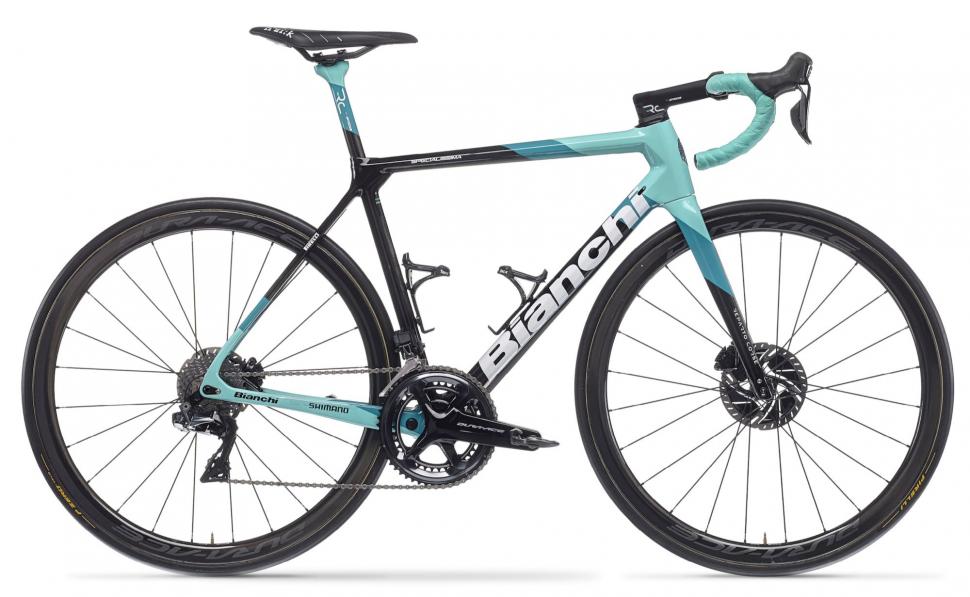
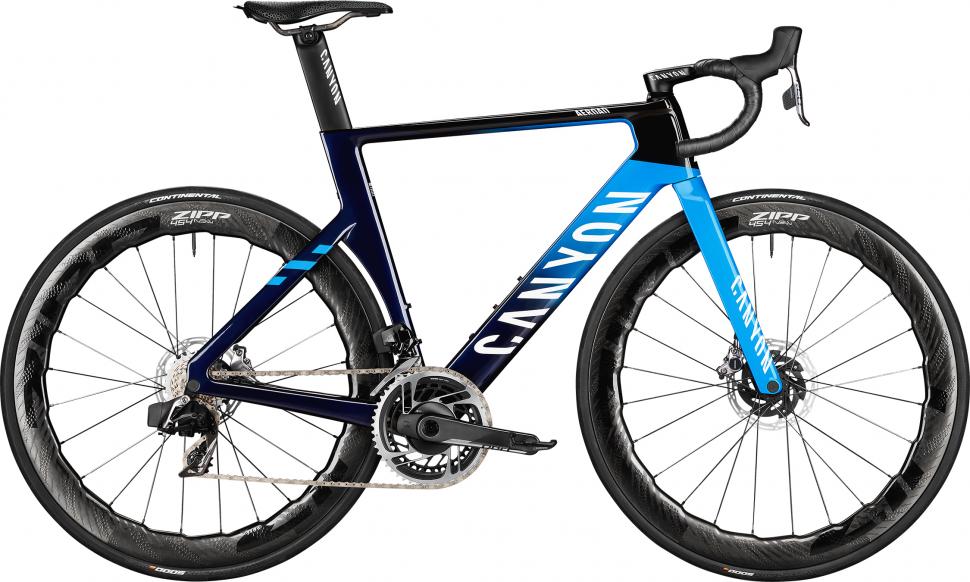
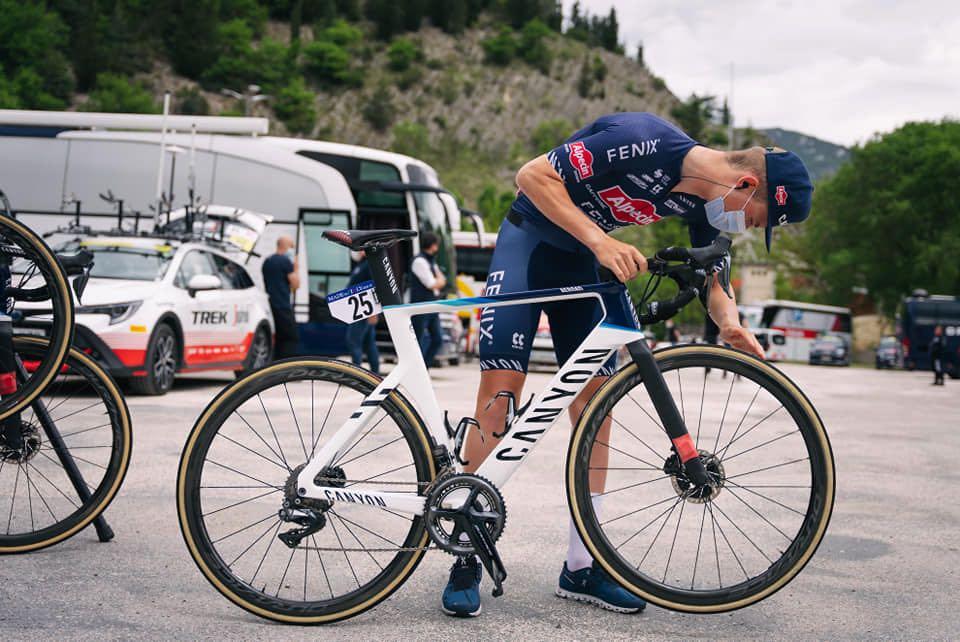
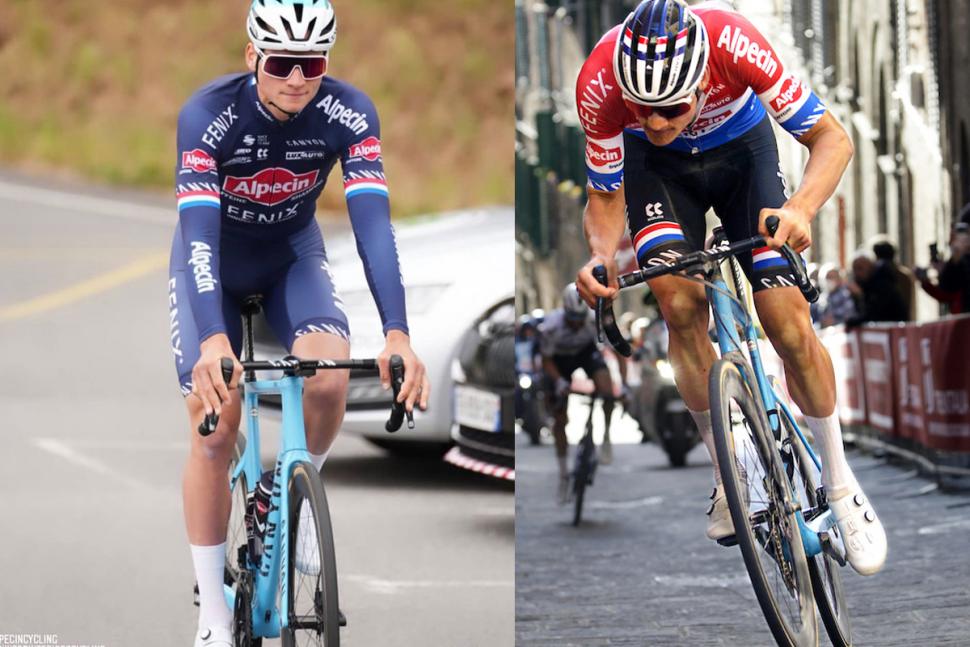
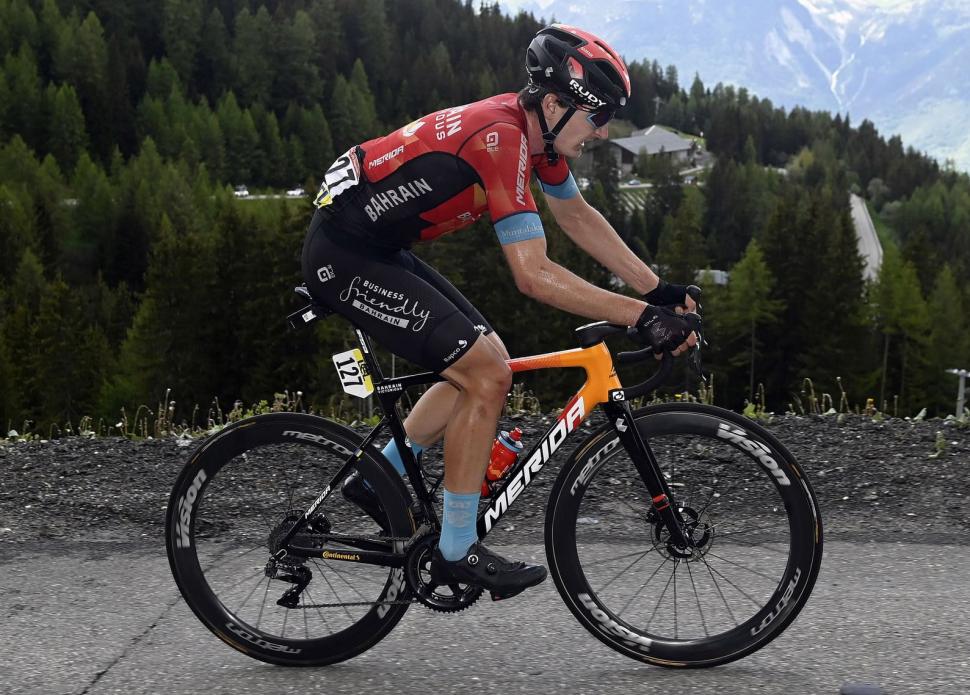
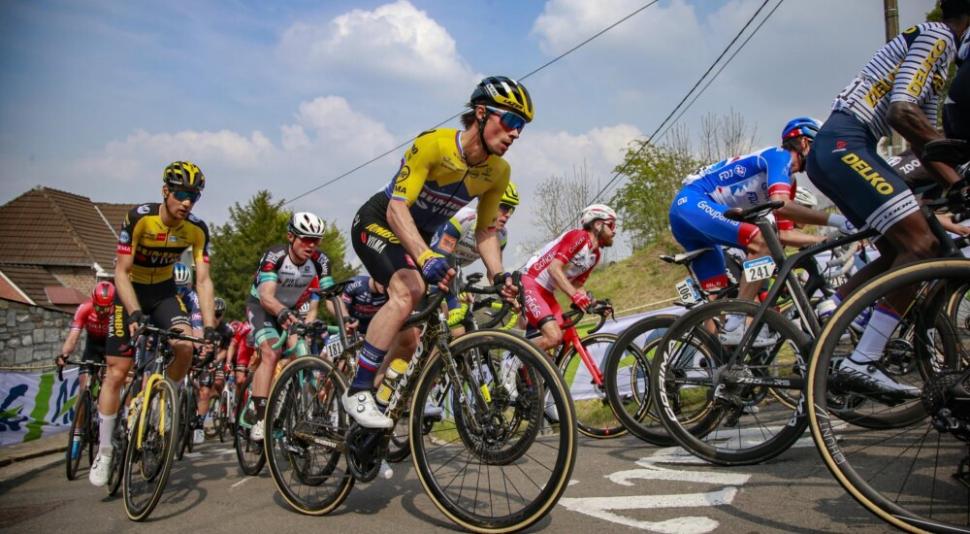
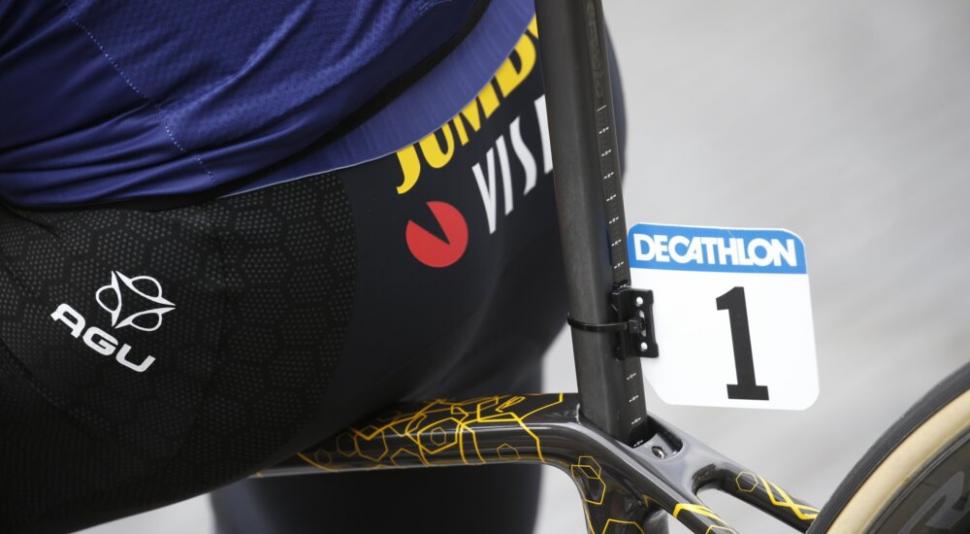
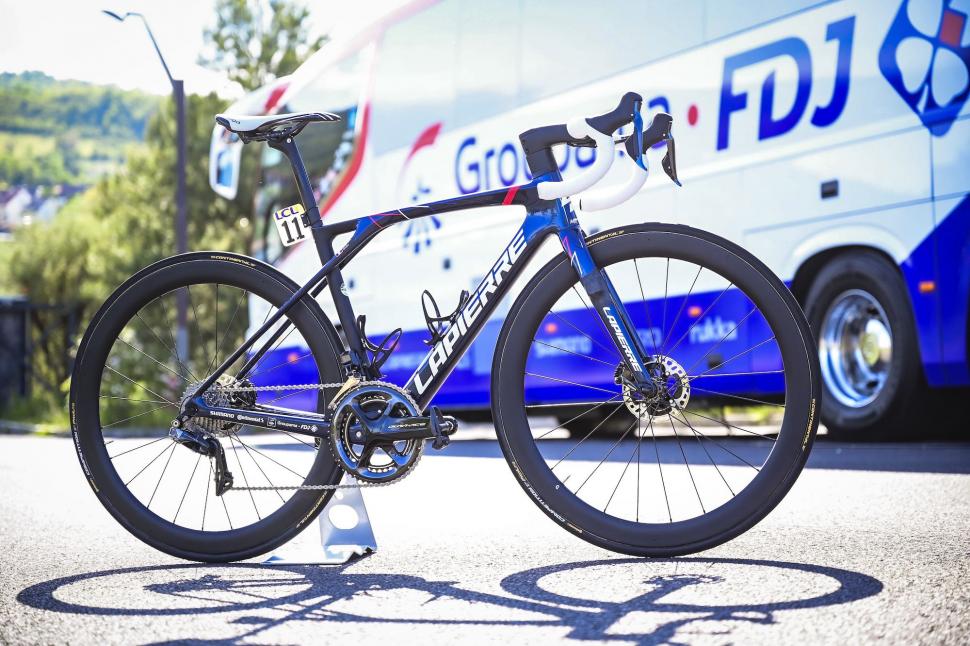
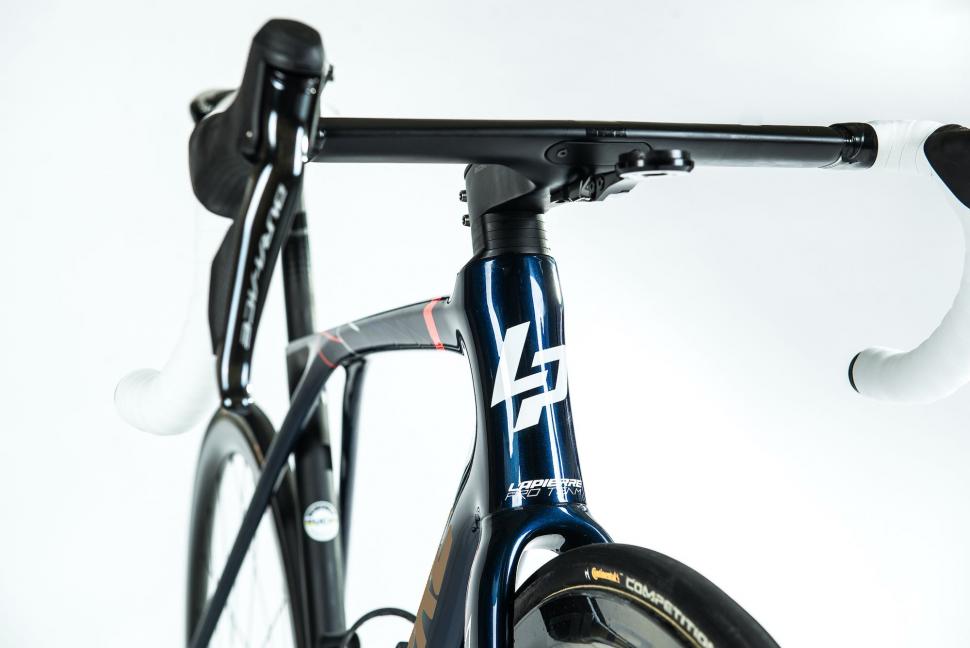
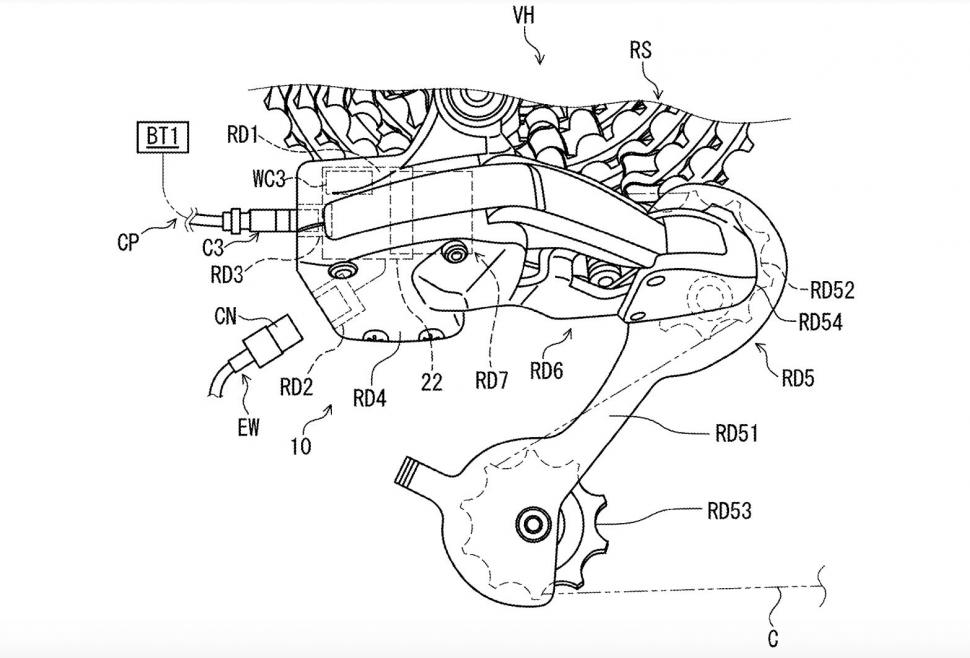
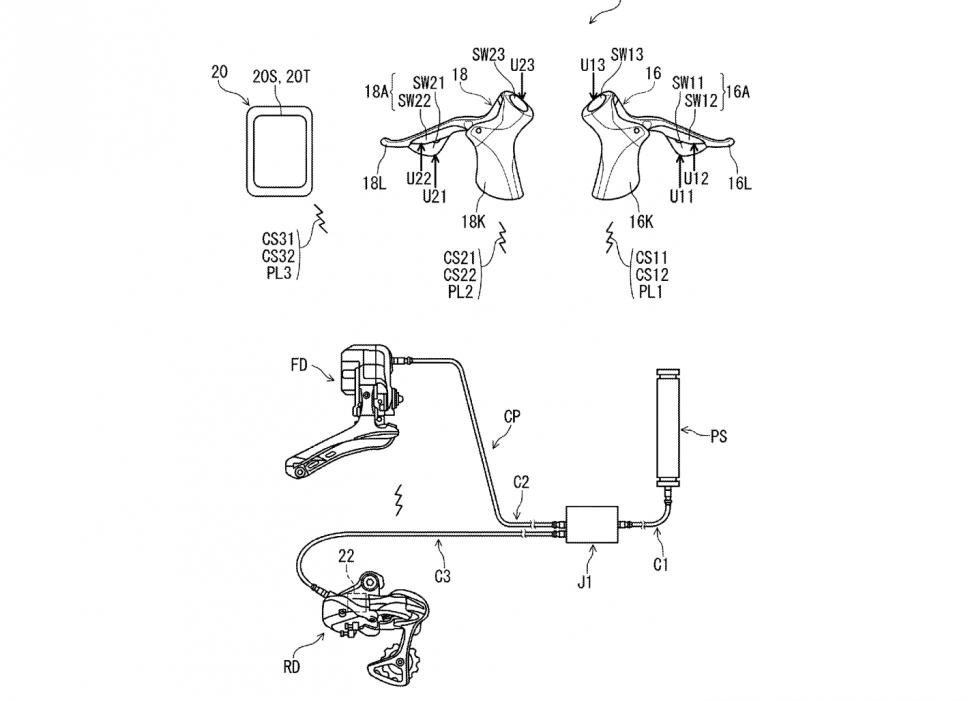
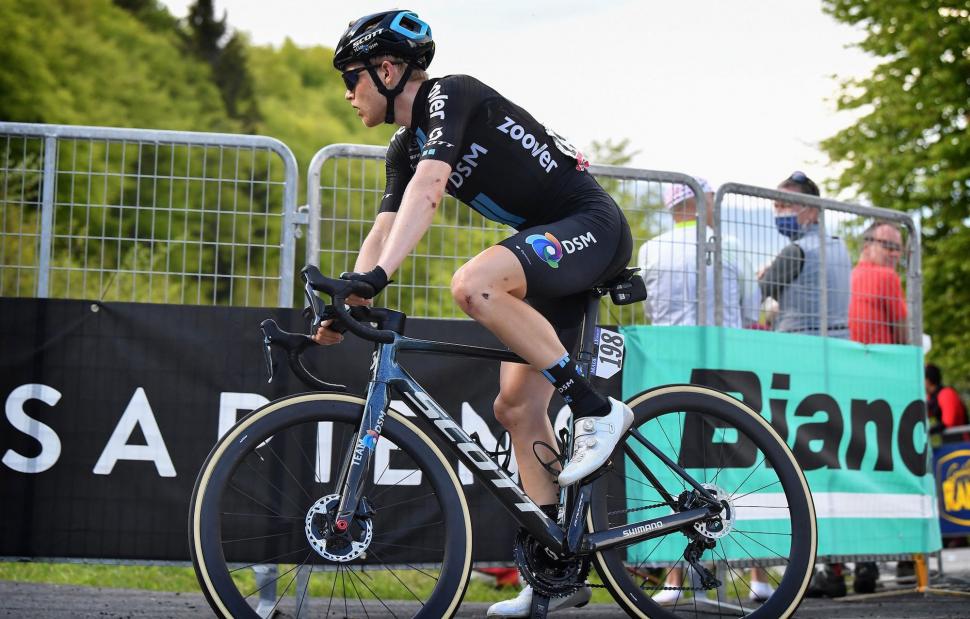
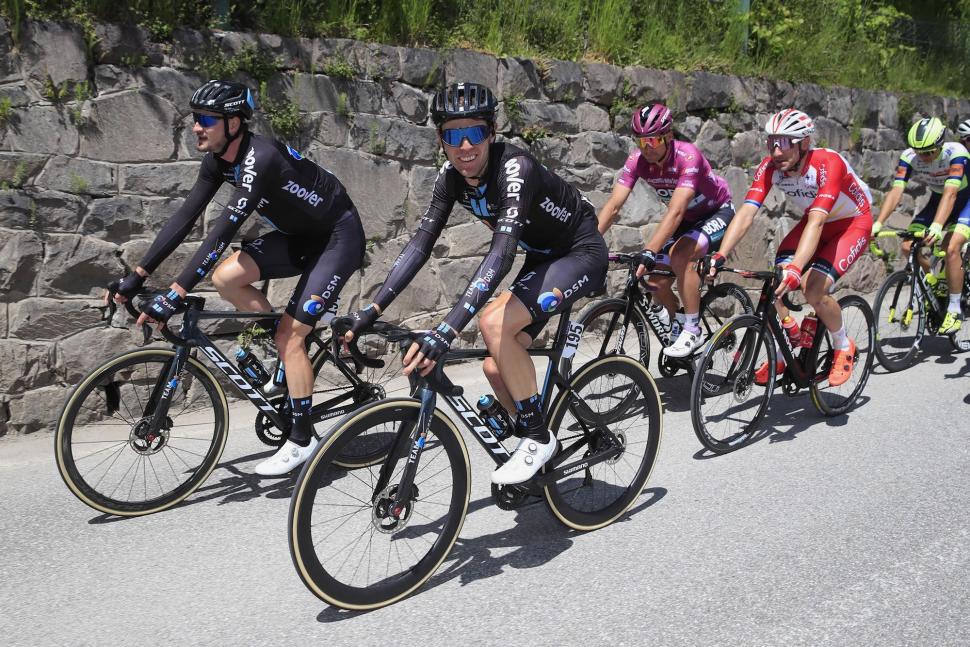
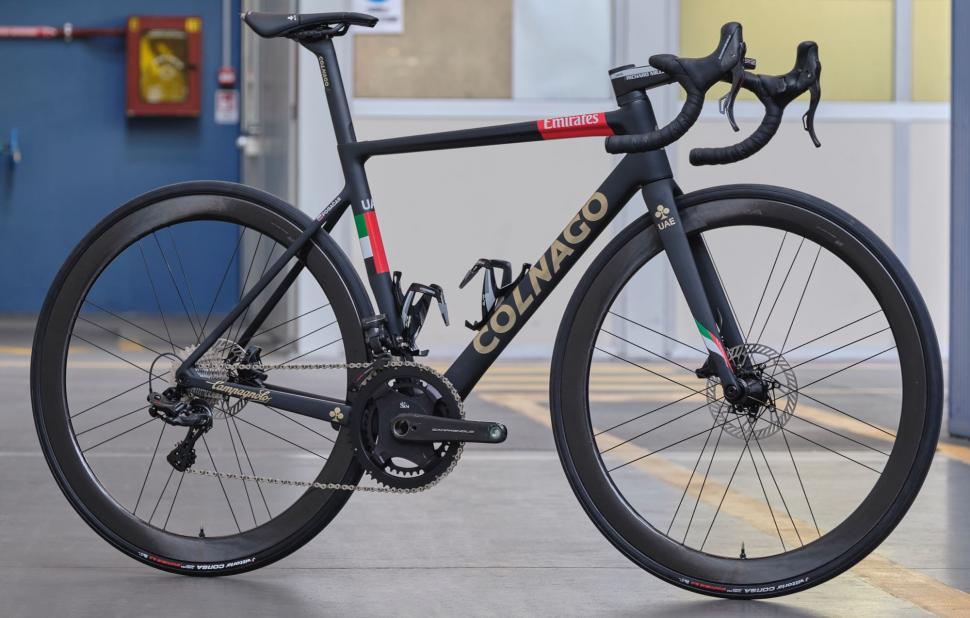
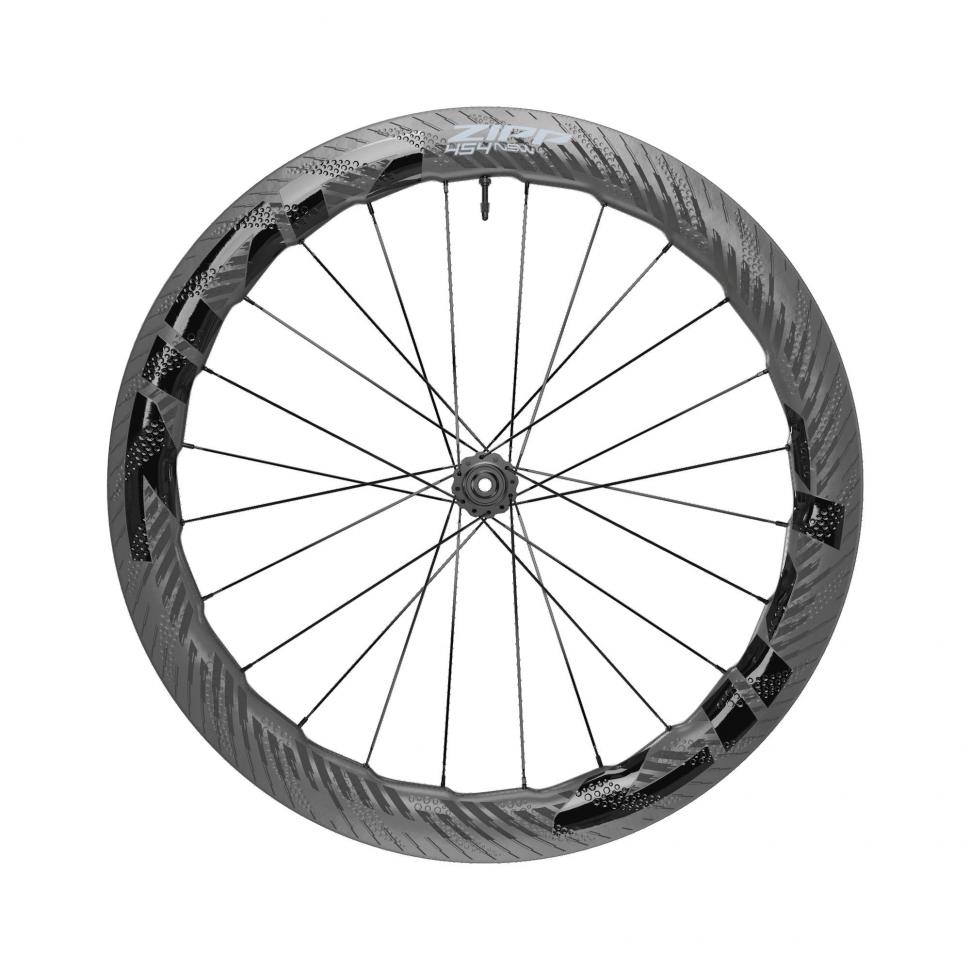
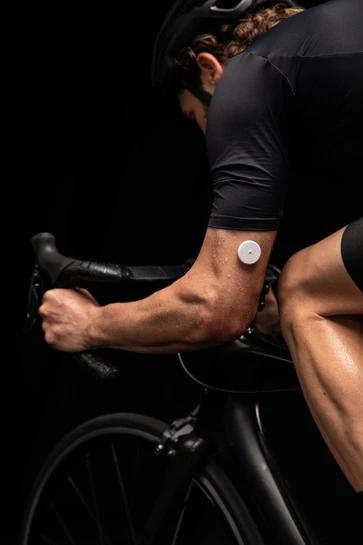
0 Response to "Shimano Shifters Look Funny at Parisnice"
Post a Comment